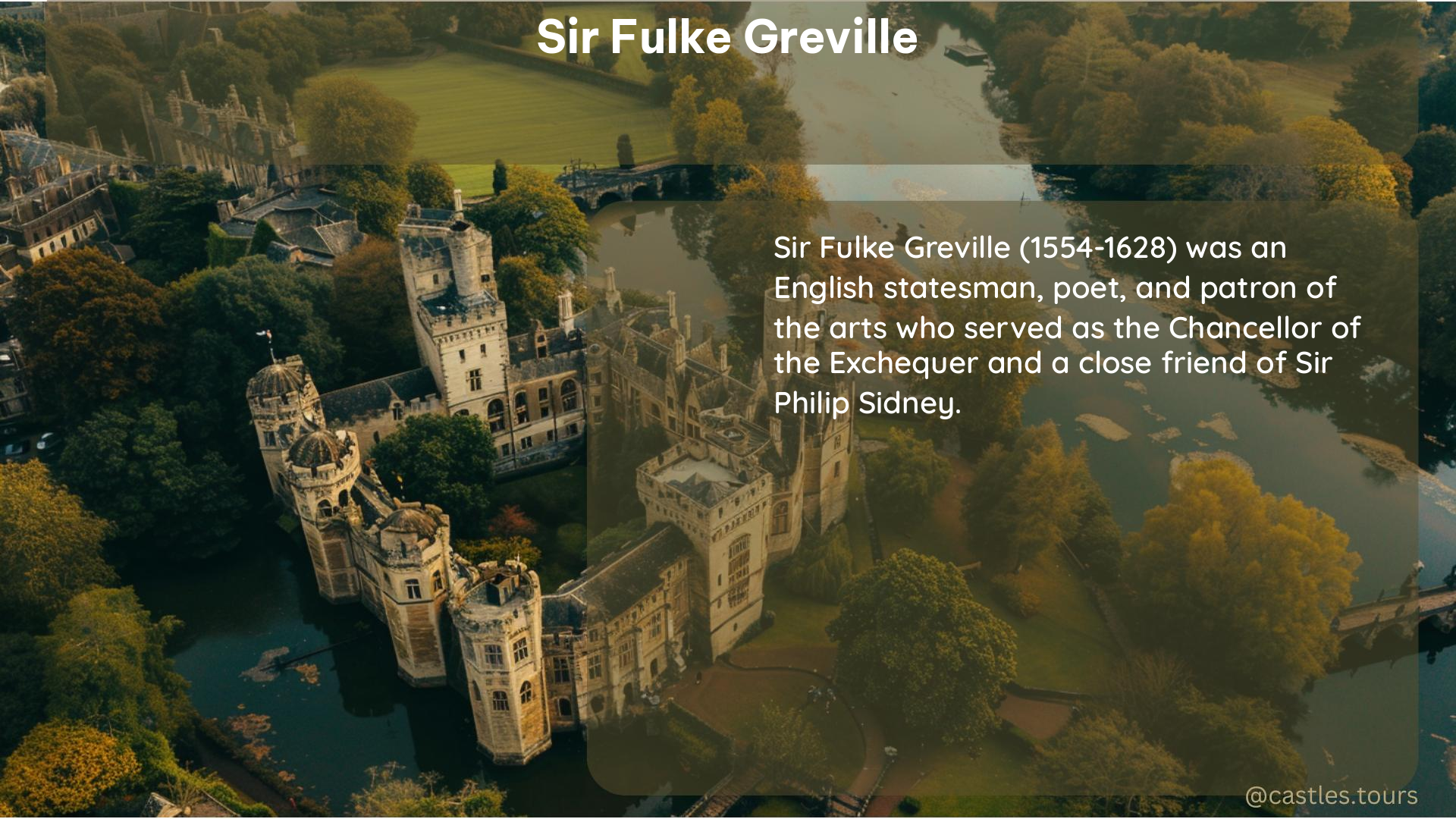Sir Fulke Greville (1554-1628) was an Elizabethan poet, dramatist, and statesman who played a significant role in the political and literary landscape of his time. As a capable administrator, he served the English Crown under Elizabeth I and James I, holding various positions such as treasurer of the navy, chancellor of the exchequer, and commissioner of the Treasury. Greville is also renowned for his biographic work on Sir Philip Sidney, his close friend, and for his thought-provoking poetry that explores philosophical themes.
Early Life and Education
Greville was born on October 3, 1554, into an influential landowning Warwickshire family with aristocratic connections. At the age of ten, he joined the young Philip Sidney at the newly founded school in Shrewsbury, where their friendship was forged over the course of three years. After their time at Shrewsbury, Greville went on to study at Jesus College, Cambridge, while Sidney pursued his studies at Christ Church, Oxford.
Political Career

Greville’s political career began in 1581 when he was elected as a Member of Parliament for Southampton in a by-election. He went on to represent Warwickshire in five consecutive parliaments, demonstrating his dedication to public service. In 1598, he was appointed treasurer of the Navy, and later, he held the positions of chancellor of the exchequer and commissioner of the Treasury. In recognition of his contributions, Greville was made Baron Brooke of Beauchamps Court in 1621.
Literary Works
Greville’s literary legacy is diverse and thought-provoking. His most well-known work is the Dedication to Sir Philip Sidney, originally published as Life of the Renowned Sir Philip Sidney in 1652. This biographical work serves as a testament to his deep friendship with Sidney and the profound impact the latter had on Greville’s life and literary pursuits.
In addition to the Dedication to Sir Philip Sidney, Greville’s literary works include the closet dramas Alaham (1633) and Mustapha (1609), his sonnet sequence Caelica (1633), and a series of verse treatises exploring themes such as fame, honor, human learning, war, monarchy, and religion. These works showcase Greville’s philosophical and contemplative nature, as he delves into complex questions about the human condition and the nature of power.
Warwick Castle and Patronage
Greville’s connection to Warwick Castle is significant, as he was granted the castle in 1604 and made numerous improvements to it. This acquisition further solidified his status and influence within the aristocratic circles of the time.
In addition to his own literary pursuits, Greville was also a patron of the arts, supporting and encouraging other writers and artists during his lifetime. This aspect of his legacy highlights his commitment to the cultural and intellectual advancement of his era.
Legacy and Impact
Sir Fulke Greville’s multifaceted legacy as a poet, dramatist, statesman, and patron of the arts has left an indelible mark on the Elizabethan and Jacobean periods. His thought-provoking works, his political acumen, and his dedication to the arts have cemented his place as a significant figure in the cultural and historical landscape of England during the 16th and 17th centuries.
